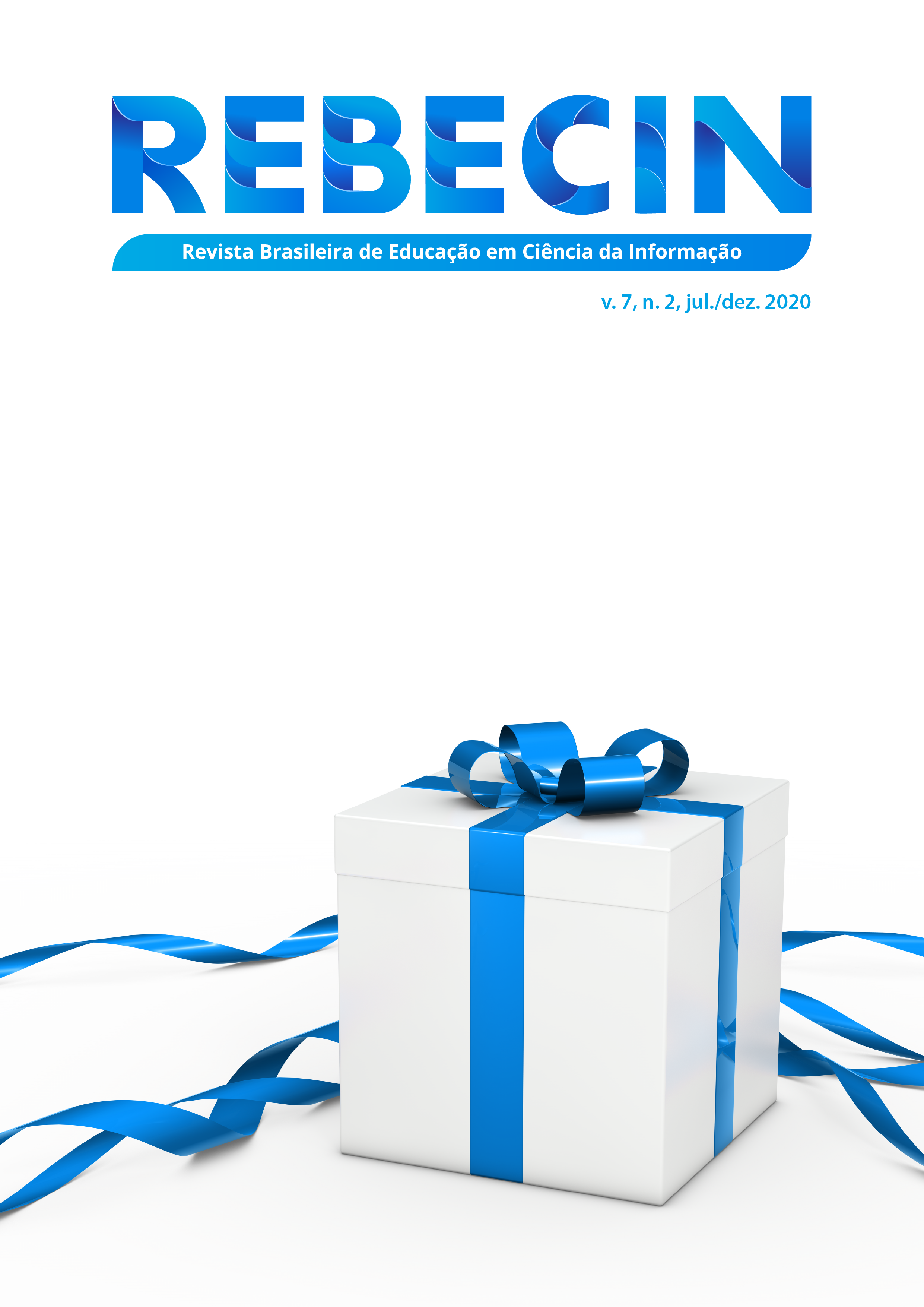The Challenges of the teaching of RDA in librarianship courses
report of teaching experience at UFMG
DOI:
https://doi.org/10.24208/rebecin.v7i2.203Keywords:
Library education, CatalogingAbstract
The adoption of the RDA standard by Brazilian libraries is a reality that demands reflection and sharing of experiences. In this sense, the teaching of the RDA in librarianship courses is a priority to prepare future professionals for this transition and its implementation, but it also presents itself as a challenge. In this work, the experience of the librarianship course of a Brazilian university will be reported on the offer of a course to be introduced to the RDA, planned and implemented from the proposals presented in Margareth Mering's RDA teaching manual, published in English. The objective is to share the teaching experience, the results obtained and the difficulties encountered. The positive points of the manual, the difficulties of adapting the translation, the most interesting and challenging activities and the methodology will be highlighted. The final considerations highlight the limitations identified in this study and propose reflections on the implementation of the RDA. In addition, it will also be demonstrated that for teaching the signature will not be an necessity, which discourages the librarianship courses of this investment.
Downloads
References
AMERICAN LIBRARY ASSOCIATION; CANADIAN LIBRARY ASSOCIATION; CHARTERED INSTITUTE OF LIBRARY AND INFORMATION PROFESSIONALS (GRÃ-BRETANHA). JOINT STEERING COMMITTEE FOR DEVELOPMENT OF RDA. RDA: resource description & access. 2016. Versão em espanhol. Disponível em: http://www.rdatoolkit.org/ Acesso em: 01 jan. 2016.
DUBLIN CORE METADATA INITIATIVE. DCMI: Frequently Asked Questions (FAQ). Disponível em: http://dublincore.org/resources/faq/. Acesso em: 2 ago. 2011.
KAUFMAN, K. Metadata Object Description Schema (MODS) - PowerPoint PPT Presentation. Disponível em : http://www.slideserve.com/kenley/metadata-object-description-schema-mods Acesso em: 04 ago. 2017.
LI, K. Introduction to BIBFRAME. 2013. Disponível em : https://www.slideshare.net/islanderlee/introduction-to-bibfra me?from_action=save Acesso em: 04 ago. 2017.
MARTINÉZ PUJADAS, E. Catalogación con RDA, módulo 4: Codificación de las RDA en formato MARC21 y panorámica de los nuevos sistemas. Illes Balers (Espanha): UIB Virtual, 2017. 55 p.
MERING, M. The RDA workbook: learning the basics of Resource Description and Access. Santa Barbara, California: Libraries Unlimited, 2014.
MEY, E. S. A. Catalogação e descrição bibliográfica: contribuições a uma teoria. ABDF, 1987. 201p.
MEY, E. S. A. Introdução a catalogação. Brasília: 1995. 123p
MEY, E. S. A.; SILVEIRA, N. C. Catalogação no plural. Brasília, DF: Briquet de Lemos, 2009. 217 p.
PICCO, P.; REPISO, V. O. RDA, el nuevo código de catalogación: cambios y desafíos para su aplicación. Revista Española de Documentación Científica, v. 35, n. 1, enero-marzo, p. 145-173, 2012. ISSN: 0210-0614.
TAYLOR, A. G. The organization of information. Englewood, CO: Libraries Unlimited, 1999.
WELSH, A.; BATLEY, S. Practical cataloguing: AACR, RDA and MARC21. New York: Neal-Schuman Publishers, imprint of American Library Association, 2012.
WORKING GROUP ON THE FUTURE OF BIBLIOGRAPHIC CONTROL. On the record: Report of The Library of Congress Working Group on the Future of Bibliographic Control. LC, 2008. Disponível em: https://www.loc.gov/bibliographic-future/news/lcwg-ontherecord-jan08-final.pdf Acesso em: 29 jan. 2019.
Downloads
Published
How to Cite
Issue
Section
License
A REBECIN adota a licença Creative Commons CC-BY 4.0 (https://creativecommons.org/licenses/by/4.0/deed.pt_BR) , a qual permite:
- Compartilhar— copiar e redistribuir o material em qualquer suporte ou formato
- Adaptar— remixar, transformar, e criar a partir do material para qualquer fim, mesmo que comercial.
A REBECIN considera que o autor detém o direito autoral sobre sua produção, porém o autor deve concordar em ceder à revista o direito à primeira publicação. Além disso, o autor deve concordar que:
- em quaisquer publicações em repositórios institucionais, capítulos de livro ou outras produções decorrentes de trabalhos publicados na REBECIN, devem ser dados os devidos créditos à publicação inicial.
- estão autorizados a publicar e distribuir seu trabalho online (ex.: em repositórios institucionais ou na sua página pessoal) a qualquer momento antes ou durante o processo editorial, já que isso pode gerar alterações produtivas, bem como aumentar o impacto e a citação do trabalho publicado pela REBECIN.









 Licenciada por
Licenciada por 